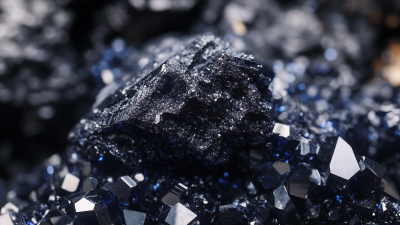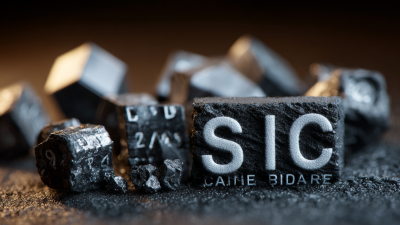Leave Your Message
Black Silicon Carbide has emerged as a vital material in various industrial applications, thanks to its impressive properties and versatility. According to a report by Research and Markets, the global silicon carbide market is projected to reach USD 3.02 billion by 2025, driven by the increasing demand for advanced materials in the automotive, aerospace, and electronics sectors. This surge can be attributed to Black Silicon Carbide's exceptional hardness, high thermal conductivity, and its ability to withstand extreme temperatures, making it an ideal choice for both abrasive and non-abrasive applications.
In the metallurgy and manufacturing industries, for instance, Black Silicon Carbide is extensively used for grinding, cutting, and polishing processes. The demand for high-performance abrasives in these sectors highlights the importance of using materials that can enhance productivity and safety. Furthermore, the growing focus on sustainable manufacturing practices has led to a rise in the usage of eco-friendly materials, where Black Silicon Carbide stands out due to its production process and recyclability. As industries continue to innovate and pursue efficiency, understanding the top benefits of using Black Silicon Carbide will be crucial for professionals aiming to leverage its unique attributes in their operations.
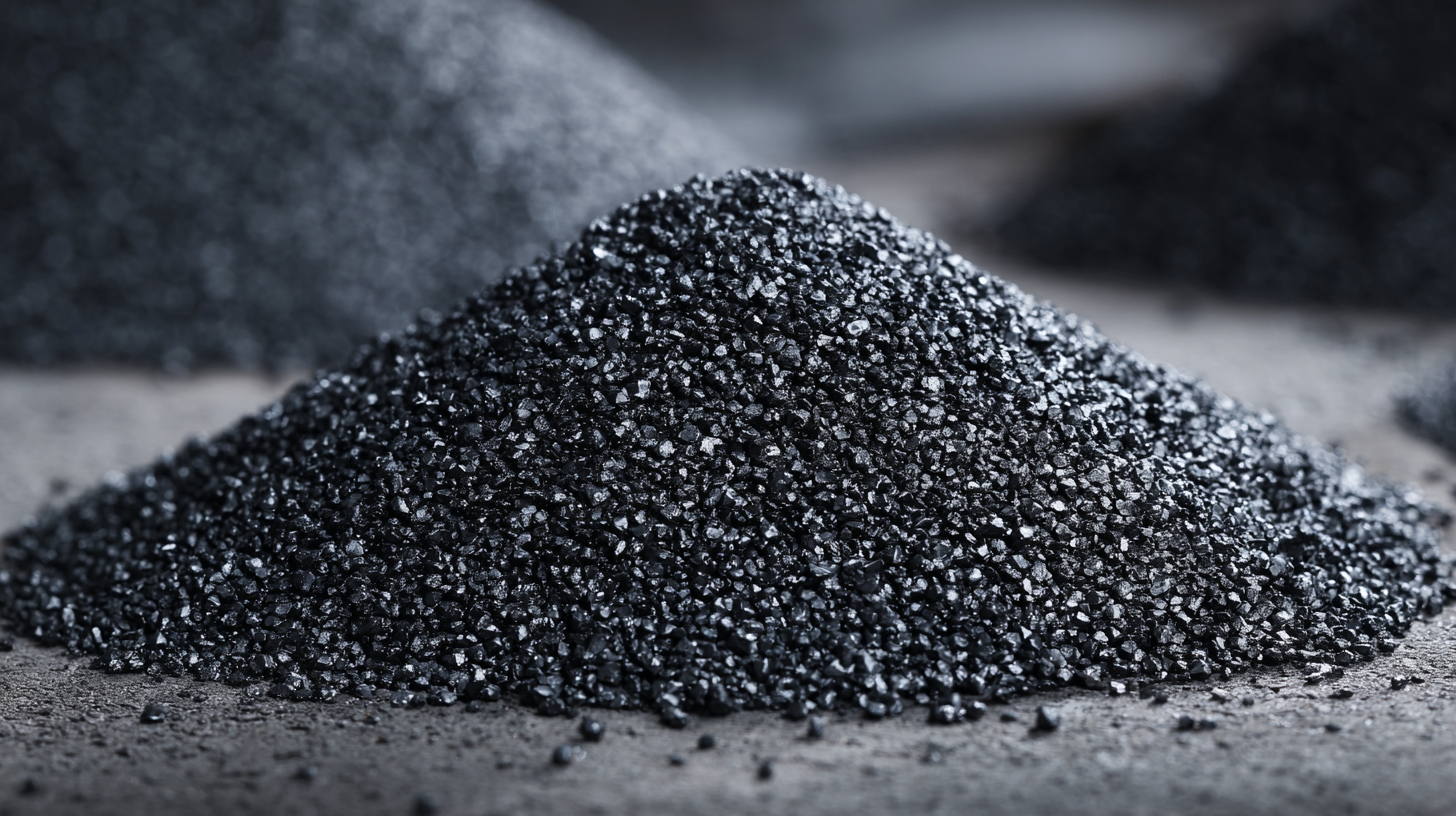
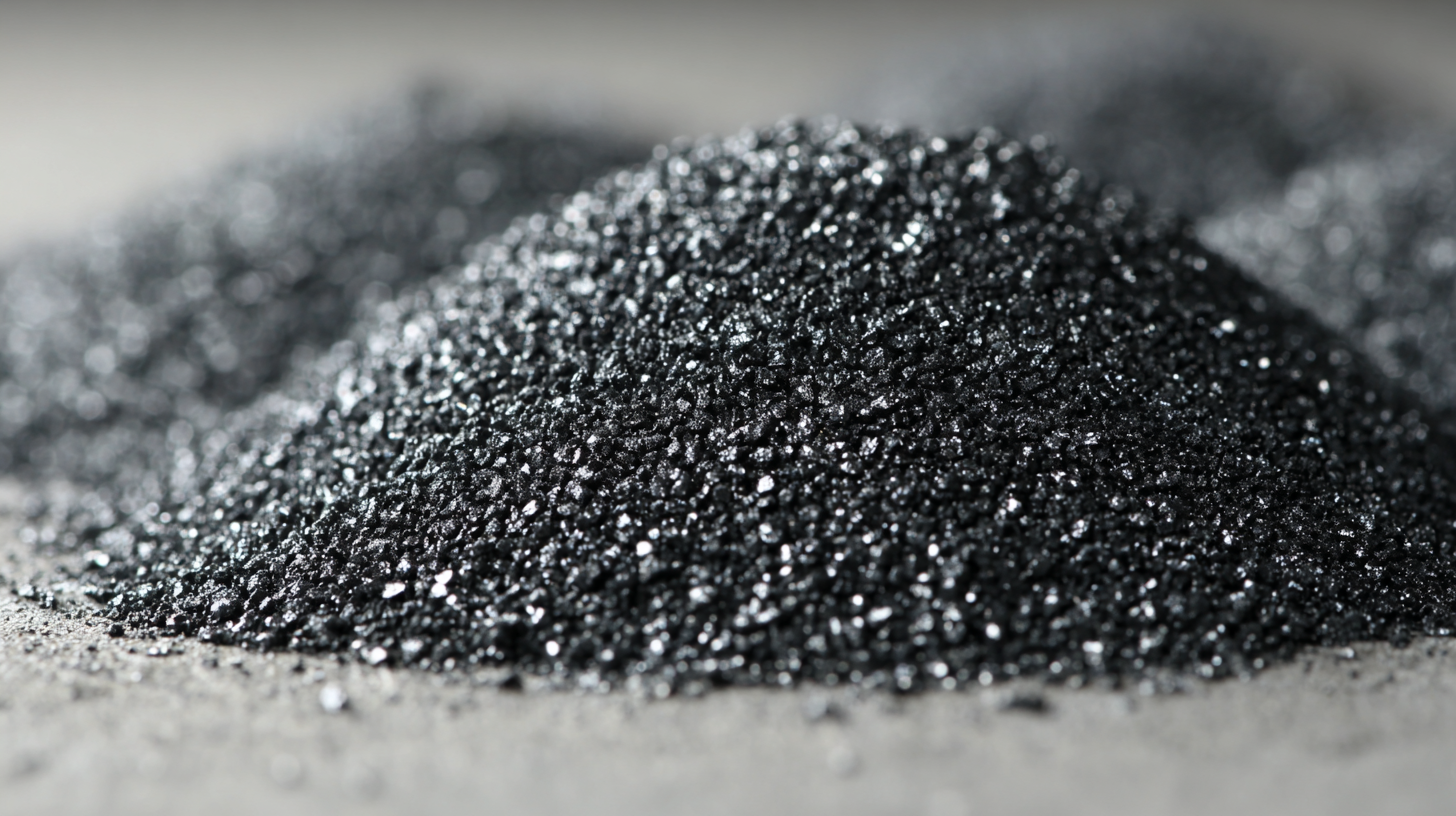 Black silicon carbide (SiC) is widely recognized for its exceptional properties, making it a preferred material in various high-performance abrasive applications. One of the primary advantages of black silicon carbide is its superior hardness, which allows it to effectively cut and grind a diverse range of materials, including metals, ceramics, and glass. This characteristic results in higher efficiency during the manufacturing processes, leading to reduced production time and costs.
Black silicon carbide (SiC) is widely recognized for its exceptional properties, making it a preferred material in various high-performance abrasive applications. One of the primary advantages of black silicon carbide is its superior hardness, which allows it to effectively cut and grind a diverse range of materials, including metals, ceramics, and glass. This characteristic results in higher efficiency during the manufacturing processes, leading to reduced production time and costs.
Moreover, black silicon carbide has a unique crystalline structure that provides remarkable thermal stability and resistance to wear. This durability ensures that abrasives made from SiC maintain their performance over time, even under extreme conditions. This feature is particularly beneficial in industries that require precision and consistency, such as automotive and aerospace, where any deviation in quality can lead to significant repercussions. Additionally, its sharp edges and low density make it ideal for creating finer abrasives that can achieve smoother finishes, enhancing the overall quality of the end product.
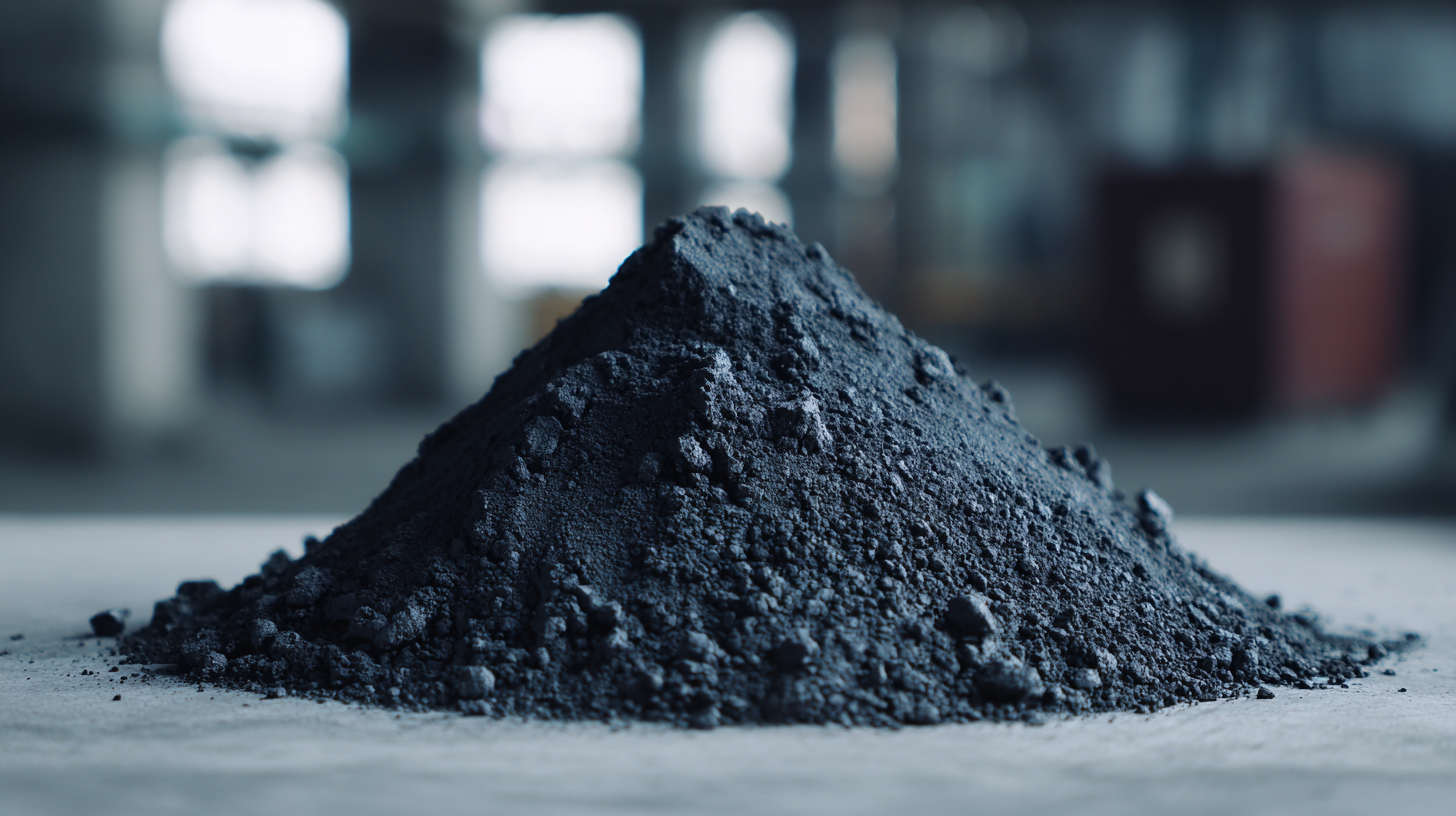 Black silicon carbide (SiC) is increasingly recognized for its remarkable durability and longevity in industrial applications. Known for its superior hardness and resistance to wear, SiC is an ideal material for components that endure harsh conditions. This enhanced durability translates to reduced maintenance needs and extended service life of tools and machinery, ultimately resulting in cost savings for manufacturers. In abrasive applications, black silicon carbide outperforms many traditional materials, providing a consistent cutting edge and reliability even in high-pressure environments.
Black silicon carbide (SiC) is increasingly recognized for its remarkable durability and longevity in industrial applications. Known for its superior hardness and resistance to wear, SiC is an ideal material for components that endure harsh conditions. This enhanced durability translates to reduced maintenance needs and extended service life of tools and machinery, ultimately resulting in cost savings for manufacturers. In abrasive applications, black silicon carbide outperforms many traditional materials, providing a consistent cutting edge and reliability even in high-pressure environments.
Furthermore, black silicon carbide's thermal stability allows it to maintain performance under extreme temperatures, enhancing its appeal across various sectors, including automotive, aerospace, and electronics. Its chemical inertness also minimizes degradation from exposure to corrosive substances, thereby extending operational capabilities. As industries seek more efficient and sustainable solutions, the adoption of black silicon carbide is poised to rise, driven by its contribution to improved durability and longevity in demanding applications.
Black silicon carbide (SiC) has emerged as a cost-effective alternative to traditional abrasive materials in various industrial applications. Its unique properties, including high hardness and thermal conductivity, make it a preferred choice for tasks such as grinding and polishing. Compared to materials like aluminum oxide, black silicon carbide often delivers equivalent or superior performance while significantly reducing overall costs. The lower price point, paired with its durability, means businesses can achieve better efficiency without the need for frequent replacements or additional processing costs.
Moreover, the production process of black silicon carbide has become more streamlined, contributing to its affordability. Manufacturers utilize advanced techniques to produce high-quality SiC at a lower energy expense, which translates into savings for end-users. As industries increasingly seek sustainable solutions, the ability to provide a highly efficient yet economically viable abrasive option makes black silicon carbide an attractive choice. This combination of performance and cost savings positions black silicon carbide as a leading material for industries looking to optimize their operations without compromising on quality.
| Benefit | Description | Cost-effectiveness (vs. Alternatives) |
|---|---|---|
| High Hardness | Exceptional hardness making it ideal for abrasive applications. | Lower wear rates, reducing overall material costs. |
| Thermal Conductivity | Excellent thermal conductivity for effective heat dissipation. | Reduced cooling costs compared to lesser conductive materials. |
| Chemical Resistance | Resistant to many chemicals, making it durable in harsh environments. | Lower replacement costs due to longevity. |
| Versatility | Used in a variety of applications like abrasives, refractories, and ceramics. | Reduced inventory costs by serving multiple purposes. |
| Performance Efficiency | Enhances the performance of tools and materials. | Increased productivity leads to cost savings. |
Black silicon carbide (SiC) stands out in industrial applications due to its remarkable versatility across various manufacturing processes. This synthetic material is integral in grinding, cutting, and polishing due to its high hardness and abrasion resistance. Its ability to achieve a fine surface finish makes it invaluable in industries such as automotive and aerospace, where precision is paramount. Black silicon carbide can effectively handle different substrates, from ceramics to metals, making it a preferred material in diverse applications.
Moreover, black silicon carbide exhibits excellent thermal conductivity and electrical resistivity, allowing it to be used in multiple high-performance applications. In the electronics sector, it is utilized as a semiconductor for high-voltage and high-temperature devices, facilitating advancements in energy efficiency. Additionally, its performance in refractory materials enhances thermal stability, making it suitable for high-temperature environments, such as furnaces and kilns. The adaptability of black silicon carbide ensures it remains a critical material in various manufacturing and industrial processes, driving innovation and efficiency.
The above chart illustrates the top benefits of using black silicon carbide in various manufacturing processes. The data reflects the estimated impact of each benefit on industrial applications.
Black silicon carbide (SiC) is increasingly recognized for its environmental advantages in various industrial applications. One of the primary benefits is its role in reducing waste. Since SiC is produced from high-quality raw materials, it generates less byproduct during manufacturing compared to traditional abrasives. This lower waste output not only decreases landfill requirements but also minimizes the carbon footprint associated with production processes.
Additionally, black silicon carbide is highly durable and long-lasting, which leads to less frequent replacements in industrial settings. Its superior hardness and thermal resistance enhance performance, reducing the consumption of materials over time. Furthermore, the use of SiC abrasives can lower energy consumption during processing, contributing to overall energy efficiency in operations. With industries pushing towards sustainability, black silicon carbide serves as a viable alternative that aligns with eco-friendly practices, ultimately supporting a greener industrial future.


